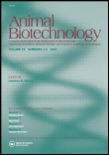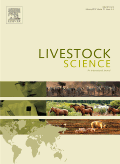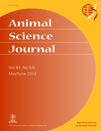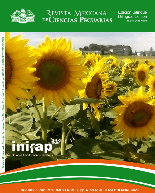
ANIMAL BIOTECHNOLOGY
Scope & Guideline
Empowering Scholars to Shape the Future of Animal Science
Introduction
Aims and Scopes
- Genetic Engineering and Genomic Studies:
The journal publishes extensive research on genetic modifications and genomic analyses aimed at improving traits such as growth, reproduction, and disease resistance in livestock and poultry. - Nutritional Biochemistry and Feed Additives:
Research related to dietary supplements, feed additives, and their biochemical impacts on animal health and production efficiency is a core focus area. - Animal Health and Disease Management:
Studies investigating the molecular mechanisms of diseases, vaccine development, and diagnostic approaches for animal health issues are regularly featured. - Reproductive Biotechnology:
The journal includes research on reproductive technologies, including in vitro fertilization, cloning, and the role of genetic markers in reproductive traits. - Microbiome and Gut Health:
Explorations of the gut microbiota's role in animal health, nutrition, and production are increasingly prominent in the journal's publications. - Sustainable Practices in Animal Production:
Research that addresses sustainability in livestock production systems, including environmental impacts and animal welfare considerations, is an emerging area of interest.
Trending and Emerging
- CRISPR and Genome Editing Technologies:
Research utilizing CRISPR and other genome editing technologies is on the rise, showcasing innovative approaches to enhance animal traits and improve health outcomes. - Microbiome Research and Gut Health:
There is an increasing emphasis on the role of the gut microbiome in animal health and productivity, with studies exploring microbiome manipulation as a strategy for disease prevention and performance enhancement. - Nutrigenomics and Metabolomics:
The integration of nutrigenomics and metabolomics in understanding the interactions between diet and genetics is gaining traction, highlighting the importance of personalized nutrition for livestock. - Animal Welfare and Ethical Considerations:
Emerging research focusing on animal welfare, ethical treatment, and sustainable practices reflects a growing societal concern and regulatory interest in animal biotechnology. - Biotechnology Applications in Aquaculture:
There is a noticeable increase in research related to aquaculture, particularly the application of biotechnology in improving fish health and production efficiency.
Declining or Waning
- Traditional Breeding Techniques:
There has been a decline in publications focusing solely on traditional breeding methods, as the field shifts towards genetic engineering and molecular breeding technologies. - Basic Animal Physiology Studies:
Research that merely describes physiological functions without applying biotechnological advances is becoming less common, as more studies incorporate genetic and molecular insights. - Animal Behavior Studies:
Papers dedicated to behavioral studies that do not connect to biotechnology applications or genetic insights are appearing less frequently, reflecting a trend towards more applied research.
Similar Journals

Brazilian Journal of Poultry Science
Advancing poultry science for a sustainable future.Brazilian Journal of Poultry Science, an esteemed publication of FACTA-FUNDACIO ARNCO CIENCIA TECNOLOGIA AVICOLAS, serves as a pivotal resource for researchers and professionals in the field of poultry science. Since its inception in 2000, the journal has maintained a commitment to Open Access, ensuring that high-quality research is accessible to a global audience. Based in Brazil, the journal provides a platform for innovative studies and advancements in animal science and zoology, achieving a commendable Q3 category ranking in 2023 and occupying the 270th position in Agricultural and Biological Sciences according to Scopus metrics. With a focus on disseminating robust scientific findings, the journal enhances understanding of poultry production, welfare, and genetics, crucial for the increasingly essential food production sector. Published continuously from 2002 to 2024, it remains dedicated to fostering knowledge exchange, supporting academic growth, and addressing the challenges faced by the poultry industry.

Applied Animal Science
Innovating Solutions for Animal Well-being and Food SafetyApplied Animal Science, published by Elsevier Science Inc, is an esteemed journal that has quickly made its mark in the fields of Animal Science and Food Science since its inception in 2019. With an ISSN of 2590-2873 and an E-ISSN of 2590-2865, this journal has received commendable recognition, achieving a Q2 ranking in both categories as of 2023. Encompassing a broad scope that integrates cutting-edge research and practical applications, Applied Animal Science seeks to disseminate knowledge that advances the well-being of animal systems and food safety. Researchers and professionals in the agricultural and biological sciences benefit from its high-quality articles, which are ranked #152 out of 490 and #200 out of 389 in their respective fields according to Scopus rankings. While currently not open access, the journal remains accessible to a global audience of scholars eager to explore innovative findings and robust methodologies. As it continues to grow through 2024 and beyond, Applied Animal Science aims to be a pivotal platform for fostering knowledge exchange and inspiring future studies in its domain.

Tropical Animal Science Journal
Empowering Researchers in Tropical Animal HealthTropical Animal Science Journal, ISSN 2615-787X, E-ISSN 2615-790X, is an esteemed open-access journal published by the Bogor Agricultural University, Faculty of Animal Science. Launched in 2018, this journal serves as a pivotal platform for disseminating high-quality research in the fields of Animal Science, Food Animals, and Veterinary Medicine. With its significant presence in Indonesia and a commitment to scientific innovation, it has achieved a Q3 ranking in Animal Science and Zoology and Food Animals, as well as a Q2 ranking in Veterinary (miscellaneous) as of 2023. The journal also enjoys favorable Scopus rankings, placing it in the 61st percentile for General Veterinary and demonstrating its relevance and impact in the academic community. As an advocate for open-access publishing since its inception, the journal enhances accessibility to critical research findings, making it an invaluable resource for researchers, professionals, and students alike who aim to advance their knowledge and contribute to the fields of tropical animal science.

Porcine Health Management
Empowering veterinary science for healthier pigs.Porcine Health Management is an esteemed open-access journal published by BMC, focusing on the critical intersection of veterinary science and animal husbandry with a particular emphasis on swine health. Since its inception in 2015, the journal has established itself as a leading platform for disseminating cutting-edge research, earning a prominent position in the field with a 2023 category ranking of Q1 in Animal Science and Zoology, Food Animals, and Small Animals. With a strong impact factor indicative of its quality and relevance, the journal serves as an essential resource for researchers, practitioners, and students dedicated to advancing knowledge in swine health management. It is hosted in the United Kingdom and operates under transparent open-access guidelines, providing broad accessibility to vital research findings that drive innovation in animal health practices. As the field continues to evolve, Porcine Health Management remains at the forefront, contributing to the welfare and productivity of food animals.

Animal Bioscience
Innovating the Future of Animal BiosciencesAnimal Bioscience is a premier journal dedicated to advancing the field of animal science, published by the esteemed ASIAN-AUSTRALASIAN ASSOCIATION OF ANIMAL PRODUCTION SOCIETY. With an impactful presence in South Korea, this journal serves as a pivotal platform for disseminating high-quality research in animal production, nutrition, genetics, and veterinary sciences. Its notable standing is reflected in its categorization within the Q1 quartile for Animal Science and Zoology and Veterinary (miscellaneous) disciplines, highlighting the journal's dedication to excellence and relevance. Additionally, Animal Bioscience has secured impressive rankings in various related fields, with a 94th percentile position in general veterinary studies. As an Open Access publication, it encourages broad distribution and engagement with its content, making significant contributions to the global discourse surrounding animal technology and welfare. This journal is an invaluable resource for researchers, professionals, and students aiming to deepen their understanding and promote innovations in animal biosciences.

Livestock Science
Exploring Innovations in Livestock Health and ManagementLivestock Science is a prestigious academic journal published by ELSEVIER, dedicated to the comprehensive study of animal science and veterinary medicine. With an esteemed Q1 ranking in both the fields of Animal Science and Zoology, as well as Veterinary (miscellaneous) in 2023, this journal is recognized for its impactful contributions to the understanding of livestock health, production, and management. The journal has consistently earned its high position within Scopus, ranking 26th out of 194 in General Veterinary and 86th out of 490 in Animal Science and Zoology, reflecting its significant influence within the research community. The open access policy allows for broader dissemination of knowledge, promoting collaboration among researchers, professionals, and students alike. With its continuous publication cycle from 2006 to 2024, Livestock Science remains an essential resource for anyone interested in the advancements, challenges, and innovations within the field of livestock management and veterinary practices.

CANADIAN JOURNAL OF ANIMAL SCIENCE
Exploring the Frontiers of Zoology and Animal ResearchCanadian Journal of Animal Science, published by Canadian Science Publishing, stands as a pivotal platform in the fields of Animal Science and Zoology, reflecting its commitment to advancing knowledge and research in these crucial areas. Operating since 1975, with dedicated publication since 1993, this journal boasts an impactful history and has established itself within the academic community, holding a 2023 Q2 category rank in Animal Science and Zoology, and a Q3 rank in Food Animals. With its ISSN 0008-3984 and E-ISSN 1918-1825, the journal is accessible to a wide audience, promoting collaboration and the dissemination of innovation across borders. Although not an open-access journal, its valuable insights and research findings serve as essential resources for researchers, professionals, and students striving to enhance their understanding of animal science, veterinary studies, and agricultural practices. As the field of animal science continues to evolve, the Canadian Journal of Animal Science remains a vibrant and influential part of this dynamic landscape.

ANIMAL SCIENCE JOURNAL
Uncovering Insights for a Sustainable Future in Animal SciencesAnimal Science Journal, published by Wiley, stands as a premier platform for advancing knowledge in the fields of Agricultural and Biological Sciences, Animal Science and Zoology, and Food Science. With an ISSN of 1344-3941 and an E-ISSN of 1740-0929, this journal not only enjoys a commendable Q2 ranking across multiple categories, reflecting its significance and impact within the academic community, but it also ranks within the top percentiles in terms of Scopus rankings. Operating out of the United Kingdom, the journal covers a broad spectrum of research topics relevant to animal science, encompassing both theoretical insights and practical applications. While it is not an open access journal, it remains an essential resource for researchers and practitioners eager to enhance their understanding of animal sciences, contribute to ongoing debates, and stay abreast of the latest findings from 2003 through 2024. Scholar engagement and innovative research are central to the journal’s objectives, making it an invaluable asset for students, professionals, and academics alike.

ZUCHTUNGSKUNDE
Connecting researchers to enhance animal sciences.ZUCHTUNGSKUNDE is a distinguished journal published by EUGEN ULMER GMBH CO that has been advancing the field of animal science and zoology since its inception in 1977. With its ISSN 0044-5401 and E-ISSN 1867-4518, this journal provides a vital platform for researchers, professionals, and students in the realms of animal genetics, breeding, and veterinary studies. Although currently categorized in the fourth quartile for both Animal Science and Zoology and Food Animals, ZUCHTUNGSKUNDE serves as an essential resource for sharing innovative research findings and methodologies. Located in Stuttgart, Germany, the journal is strategically positioned to foster collaboration within the European agricultural and biological sciences community. Researchers are encouraged to contribute their insights to enhance the understanding of breeding practices and improve animal welfare and productivity. Despite its challenges, ZUCHTUNGSKUNDE remains committed to addressing key issues within its scope, paving the way for future advancements in animal science.

Revista Mexicana de Ciencias Pecuarias
Advancing Animal Health and Welfare Through ResearchRevista Mexicana de Ciencias Pecuarias, published by INIFAP-CENID PARASITOLOGIA VETERINARIA, is a prominent open-access journal since 2010 that caters to the fields of Animal Science and Veterinary Medicine. Based in Mexico, this journal addresses critical issues in animal health, production, and welfare, making it instrumental for researchers, professionals, and students seeking to advance their knowledge and practices. With an impact factor that reflects its growing influence, particularly in the Q3 quartile rankings in both Animal Science and Zoology as well as Veterinary (Miscellaneous) categories, the journal provides a vital platform for the dissemination of innovative research and findings. Additionally, its Scopus Ranks position highlights its role in publishing significant contributions to the fields of Veterinary Science and Agricultural Biology. The journal fosters a collaborative learning environment through its open-access model, ensuring that valuable insights are accessible to a wide audience. For those committed to enhancing animal well-being and advancing veterinary practices, the Revista Mexicana de Ciencias Pecuarias stands as a key resource through its rigorous peer-reviewed publication process and commitment to scientific excellence.